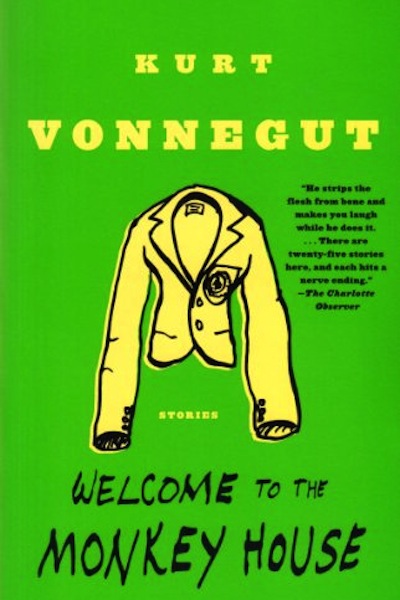Short Stories for People Who are Iffy About Short Stories
 Lorrie Moore (Bark) and Lydia Davis (Can’t and Won’t) are two masters of the short story whose new collections hit shelves this spring. But if you think of short stories as homework, as slow-moving, language-driven meditations in which nothing ever happens, you’re probably not alone. A recent article in the Millions suggests that our culture’s distaste for the form has little to do with its quality and all to do with our increased distance from it: “The decline in short story reading is, I suggest, linked to the precipitous decline in mass market magazine readership.”
Lorrie Moore (Bark) and Lydia Davis (Can’t and Won’t) are two masters of the short story whose new collections hit shelves this spring. But if you think of short stories as homework, as slow-moving, language-driven meditations in which nothing ever happens, you’re probably not alone. A recent article in the Millions suggests that our culture’s distaste for the form has little to do with its quality and all to do with our increased distance from it: “The decline in short story reading is, I suggest, linked to the precipitous decline in mass market magazine readership.”
Once upon a happier literary time, readers came across great yarns the way we now come across Buzzfeed quizzes. But just because finding stories can be a bit of a chore these days doesn’t mean the stories themselves should be. Moore and Davis epitomize the idea that “brevity is the soul of wit.” So do these other ten indispensable—and highly readable—collections:
Welcome to the Monkey House, by Kurt Vonnegut
Vonnegut, who famously hated semicolons (“all they prove is that you’ve been to college”), might be the most accessible literary hero of all time. These entertaining, bitterly funny stories are written for people, not PhDs, and they are impossible to forget.
The Collected Stories of Deborah Eisenberg, by Deborah Eisenberg
Like Lydia Davis, Eisenberg is a certified Genius, and for good reason. Her stories are artless, wistful, and easy to relate to, which allows a reader to overlook, at first, how well crafted they are.
CivilWarLand in Bad Decline, by George Saunders
Proving once again that highbrow does not have to mean highfalutin, Saunders (another Genius) writes hilarious, shocking prose. Like a chef who makes broccoli taste like bacon, he’ll make you wonder if something this enjoyable can be good for you, but it is, it really is.
The Lone Ranger and Tonto Fistfight in Heaven, by Sherman Alexie
Teachers who cannot persuade students to engage with literature fall back on Alexie, whose sophistication is layered underneath a great sense of humor.
Different Seasons, by Stephen King
Three out of four of these page-turners became movies, and two of those movies, Shawshank Redemption and Stand By Me, are classics. The key, in part, is that monsters in these stories are us; the horror is what regular people are capable of.
Olive Kitteridge, by Elizabeth Strout
Once you’ve arrived in Maine to visit Stephen King, stick around to encounter the protagonists of this Pulitzer Prize–winning collection of interlocked stories that get more disturbing and engrossing as they progress.
Come to Me, by Amy Bloom
Three of Bloom’s award-winning collections feature the word “love” in their titles; a lesser author would end up ghettoized on the chick lit shelf. Her unsentimental and unsparing view of human relationships assures her the recognition her writing deserves.
Bad Behavior, by Mary Gaitskill
Many short stories are best appreciated one at a time, but critics will advise you to take a deep dive into Gaitskill and immerse yourself in her noir–ish world of sex, drugs, and the people who cannot get enough of either. You will not be disappointed.
Drinking Coffee Elsewhere, by ZZ Packer
Packer has won virtually every accolade and fellowship a young writer can, and this insightful, fearless debut collection is what got her noticed.
Cathedral, by Raymond Carver
The collection to end all collections and the reason that creative writing students everywhere are told to memorize Carver’s rules for writing. Much like a cathedral, his writing will humble and amaze you.
Hooked? Need more? Try one of these other lesser known but highly recommended collections: Ethan Canin’s The Palace Thief, Ron Rash’s Nothing Gold Can Stay, and David Schickler’s Kissing in Manhattan.